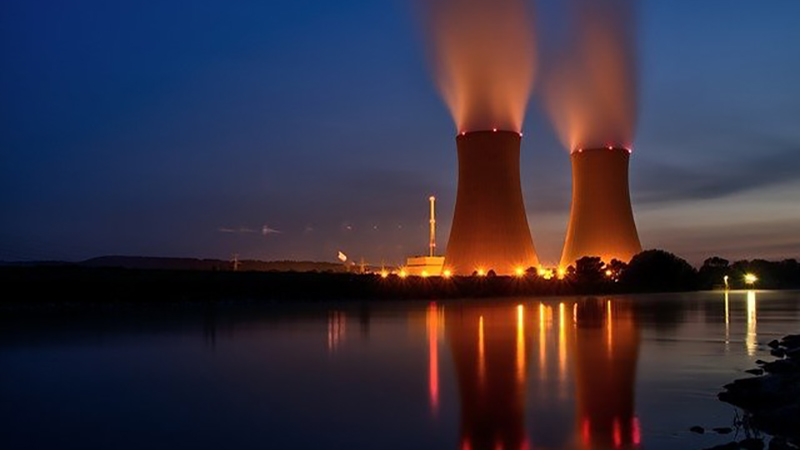By Michael Nelson for PA Future
More funding for green industries, doubling down the freeze on fuel duty and extending the corporate windfall tax were among the major announcements by the UK chancellor, Jeremy Hunt, at the Spring Budget.
In a budget low on ‘rabbit-from-hat’ moments, the chancellor added that national debt should be at its lowest since 2001 by the end of forecasts in 2029, before boasting that this would not have been possible with Labour’s now dropped £28bn green pledge – initially designed to support efforts to decarbonise the grid by 2030.
Below, PA Future outlines a list of the most pertinent sustainability points from the Spring Budget.
FCA to regulate ESG ratings providers
Announced in the supporting documentation, the government will regulate providers of Environmental, Social and Governance (ESG) ratings to users within the UK, with ESG ratings providers brought into the regulatory perimeter of the Financial Conduct Authority (FCA).
Funding for green industries
The chancellor also announced £120m of support for the government’s Green Industries Growth Accelerator, while a further combined £270m is earmarked for advanced manufacturing industries developing vehicle and space innovation, to grow “zero emission vehicle and clean aviation technology”.
James Alexander, CEO of the UK Sustainable Investment and Finance Association, said: “UKSIF is delighted to hear of £200m in planned government investment into the development of net-zero aviation and electric vehicles. This is an area where the UK has immense domestic expertise and resources, and so is in prime position to establish itself as a leader, and in doing so to attract billions in private investment.
“We also welcome the £73m in government funding to support the development of electric vehicle technology. This goes some way to reassuring investors that the UK is serious about becoming a global leader in the drive towards a sustainable economy.”
Continuing the freeze on fuel duty rates
Elsewhere, fuel duty is set to remain at its current rate and be frozen for the next 12 months. The 5p cut on fuel duty also remains, having been due to end this month.
Gemma Woodward, head of responsible investment at Quilter Cheviot, said that no Conservative chancellor “has dared get on the wrong side of motorists” by announcing they’ll hike the duty. But, if the government is serious about reaching net zero by 2050 and is serious about incentivising the switch to electric vehicles, then “they’ll need to take a long hard look at the taxes on motoring” and “fuel duty freezes are unlikely to help encourage people to make the switch”.
“There’s also the question of how the government intends on plugging the impending fiscal hole once electric vehicles become more and more popular,” she added.
“Vehicle excise duties are levied on CO2 emissions, meaning electric vehicle drivers do not pay any tax. Gradually, as more and more people adopt electric vehicles, the government’s tax receipts from vehicle excise duties will reduce substantially. That said, the government has failed to build the infrastructure to support widespread adoption of electric vehicles.
“Increasing vehicle excise duties on electric vehicles could well be the answer, but this risks stunting demand for these cars at such a crucial time. Another solution would be for the government to introduce a pay-per-mile tax scheme, which would see drivers pay tax on every mile travelled with potential incentives on offer for drivers of electric vehicles, but this is going to be quite complex to implement.”
Corporate windfall tax extended
Hunt also said that he will extend the UK’s windfall tax on the profits of oil and gas companies until 2029 “to raise a further £1.5bn” for the UK economy, as high energy prices caused by the war in Ukraine are expected to last longer.
Nuclear power
Despite being controversial, the government is doubling down on their nuclear power strategy. The chancellor spoke about wanting to see nuclear power “represent one quarter of our electricity by 2050”.
Great British Nuclear, the government’s long-term nuclear programme, will begin the next phase of its Small Modular Reactor selection process, with companies given until June to submit their initial tender responses. Additionally, Hunt also confirmed the purchase of the Wylfa site on Anglesey as part of the government’s drive to construct the next generation of nuclear power stations.
Life sciences
In the life sciences sector, the chancellor proposed an additional £45m investment, with £3m put into cancer research. This came alongside a further announcement of a brand new investment in to AstraZeneca, which supplied a high number of vaccines for Covid-19 during the pandemic.
Hunt also announced an additional £650m investment in the Cambridge Biomedical Campus, alongside a new vaccine manufacturing hub in Liverpool.
Overall, however, some investment professionals were disappointed at the lack of green initiatives announced.
Simon Crookston, tax partner at Crowe UK, said: “A net zero emission economy should continue to be at the heart of the UK’s business investment strategy.
“It is a real shame that the chancellor did not announce a suite of incentives and investment reliefs to provide a direct green boost for the UK’s 5.6 million private sector businesses.
“Further reliefs for investment in capital expenditure and R&D would have been welcomed. While the chancellor’s focus on businesses in the Green Industries Growth Accelerator (GIGA) sectors is welcome, it seems to be off target and provides little support for the majority of the UK’s businesses.”
This article was originally written for our sister publication PA Future







